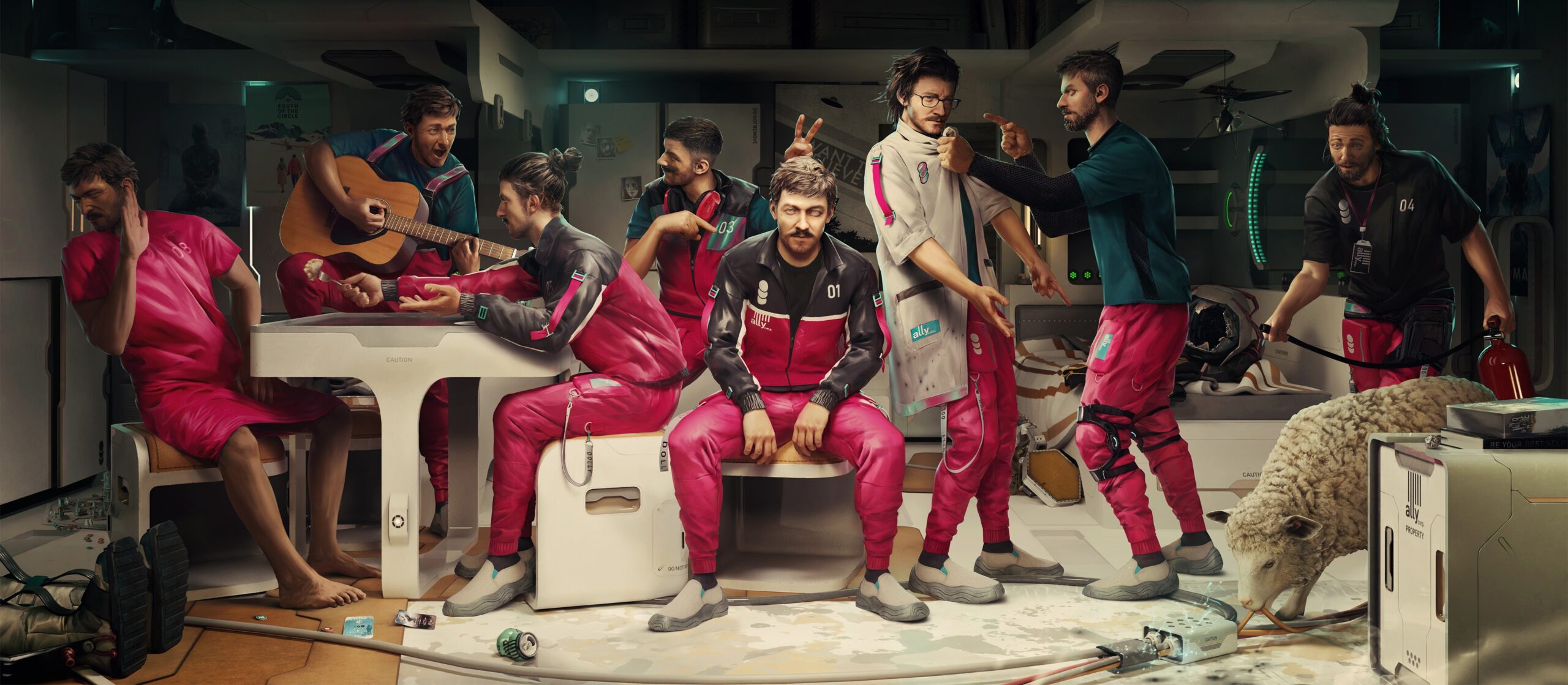
The Alters Review
The Alters asks us whether we are defined by our choices, or simply by the next choice we haven’t made yet.
I think it’s safe to say that most of us have had at least one absolute nightmare of a group project for school, in our lifetimes. The dynamic feels unfocused and chaotic, no one wants to hold up their side of the deal, and you constantly have to compromise in order to get anything done. You think if only I could clone myself six times over, this would be so much easier. If you’re Jan Dolski, the main character of 11 bit studios’ The Alters, you know that’s not necessarily true.
The Alters is a sci-fi narrative adventure that brings together elements of survival, base-building, and management genre, in a tight, choices-matter package. As the game opens, you follow Jan as he recovers from a crash landing on his exploratory mission to a distant planet, when he discovers all of his crewmates have died upon arrival. Trapped alone on a hostile planet, and desperate to survive, he just barely manages to make contact with the company that sponsored the mission back on Earth.
The Alters in Action

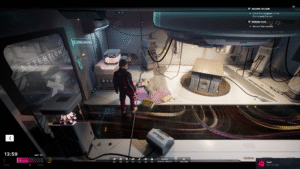


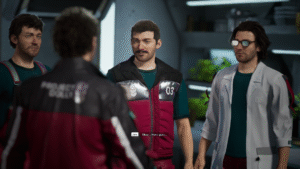
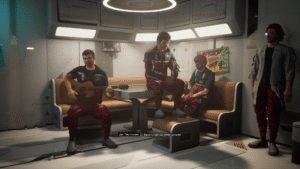




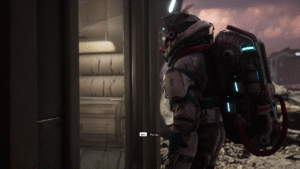
The news is bleak: surviving until a rescue crew arrives, let alone completing his mission to mine resources, is far too big a task for one man. There is, however, one serendipitous ray of hope. The extremely rare and unstable natural resource that he has discovered on the surface of the planet can power some highly experimental technology on his ship… and allow him to clone himself. But the clones aren’t exact copies, as each one has all of Jan’s memories, with one key life-defining decision altered. Thus, the Alters are born.
Babysitting me, myself and I
I could reduce the list of genres that The Alters draws from down to a single word: multitasking. You have to manage your base, an ever-growing task list, generate life-giving resources, and (most importantly) keep your Alters from biting each other’s heads off. While I was immediately intrigued by the premise of the game when I first learned of it during the Triple-i Initiative Showcase, I did have one concern. Would the story be filled with ceaseless bickering and constant Real Housewives level drama between the Jans? I wasn’t sure I would enjoy being the Bethany Frankel to Jan Scientist’s Luann de Lesseps or Jan Technician’s Ramona Singer.
I’m delighted to report that that wasn’t my experience of The Alters at all. But I should emphasize that it wasn’t my experience. This is a choices-matter game and, boy, do your choices matter. Dialogue options during conversations with your Alters and with contacts back on Earth will dictate everything from your crew’s productivity and interactions with each other, to plot events both minor and major. My experience of the game in one playthrough only scratches the surface of what can unfold in the story, creating bountiful opportunities for replayability. I experienced conflict, sure, but I also discovered many ways to connect with Jan’s Alters in touching and meaningful ways. There were also lots of moments of fun and joy, including a musical number that approached Alan Wake 2 levels.
In conversation with myself
All that to say, the dialogue system and branching narrative tree are perhaps The Alters’ strongest assets. This is one of the few choices-matter games I’ve played where I actually felt like I had a chance to learn the best strategies for interacting with each character. I find that many games with choices-matter dialogue leave the outcome of each conversation at least a little open to interpretation, and the option previews can feel misleading, so I never quite know what I’m nudging my character to do or say.
In The Alters, I felt like the conversations were backed up by the actual psychology of each character, and I was ultimately able to better understand their personalities and values through learning what approach worked best with them. I learned that one character had a big ego, for example, and generally preferred responses that showed I valued and trusted his intellect, but not at the expense of pragmatism. Another Alter wasn’t actually as shy about digging into the emotional moments of his an Jan’s past as I originally thought, but needed me to get at it sideways, through sarcasm and the occasional ribbing.
Over time, I stopped feeling like I was pushing buttons in a game, and instead became immersed in the experience of learning about each of these flawed, complicated, but deeply caring alter-egos. Through them, I also learned about the hopes, dreams, fears and regrets of our main character, and a hell of a lot about myself, too.
A breath of fresh air in choices matter dialogue
I think this is the result, in equal measures, of great writing and well-crafted game design. The options I was given to pick from felt representative of Jan’s actual dialogue, and never left me stunned at what I had just chosen. The writing felt authentic and organic. Characters stayed true to themselves, but weren’t one-dimensional. After showing enough good faith and an understanding of each Alter’s perspective, I could sometimes break past whatever barriers they put up, to reach a brand new mutual understanding.
From a game design standpoint, The Alters gets the choices-matter dialogue system just right. After most dialogue choices you see the Alter react, hear their response (all voice acted incredibly), and also see color-coded positive or negative feedback on two of the four key metrics for their mental state. Their responses contribute to increasing or decreasing levels of Frustration, Motivation, Insecurities and Burden. Getting multi-modal feedback (visual, auditory, and categorical) was hugely instrumental in figuring out each character’s personality and preferences.
At the same time, the conversations and options were nuanced enough that I almost never knew with complete certainty what the result would be from choosing one option over another. Over time, I stopped feeling like I was pushing buttons in a game, and instead became immersed in the experience of learning about each of these flawed, complicated, but deeply caring alter-egos. Through them, I also learned about the hopes, dreams, fears and regrets of our main character, and a hell of a lot about myself, too.
The Alters Trailer
Going into The Alters, I felt sure that I would wind up gravitating more either to the narrative or to the management and base-building gameplay. It’s rare to find a game with an emphasis on narrative and mechanics-heavy genres where one side or the other doesn’t suffer. Early on in Act I, I did start to feel a little bit overwhelmed by the amount of ground that Jan had to cover to explore the area outside his base and gather all the necessary resources, all while completing plot objectives.
This evened out by the end of the act, and I fell into a rhythm that I wound up finding extremely satisfying. I always looked forward to new conversations, and the gameplay moments gave me helpful moments to focus and reflect on the upcoming decisions I needed to make. The cadence of plot-driving conversations with your Alters, exploration of the planet, and setting up and operating equipment to generate resources kept me on my toes, but almost never completely stressed out, especially once my Alters were available to help out on various assignments.
Multiple strategies for Team Jan composition
One note on that last part: after the first couple of Alters, you can create as many or as few clones of yourself as you want. You also get to choose which Alters get created, by picking which moment in Jan’s memory gets adjusted. This correlates to whatever occupation the new Jan shows up with. All of them are useful on the base, and many of them correspond to specific rooms you can build for your crew. Which Alters you create (and how many) will obviously impact the story, as there are specific plot lines and moments of Jan’s character development that can only be experienced with certain Alters. I personally went light on the Jan creation, and wound up with a pretty small crew, relative to how big it can be if you “go Jan or go home.”
That wound up being a really positive decision for me, because I had fewer interpersonal quandaries to navigate, which let me put more care and consideration into each relationship. On the flip side, I had less help around the base to generate resources and produce consumables and key items for tasks, and Jan Main Character had fewer opportunities for self discovery. I didn’t actually wind up feeling pressed for time and rarely ran low on resources. Chalk it up to my ADHD ability to multitask kicking into overdrive, or fewer crewmates requiring fewer resources. But I’d be curious to go back and see what the game experience is like with a “Maximum Jan Capacity” approach.
Walking a mile in a different me’s shoes
I don’t want to spoil a single thing about the plot, and considering how many possible outcomes there are, I’m not sure how much I even could spoil. But I do want to say, playing The Alters was a far more thought-provoking and healing experience than I ever imagined it would be. Jan Dolski’s journey provoked me to consider what I would do for survival and how far I would push my own ethical boundaries for the sake of those I love.
Getting to know Jan’s Alters taught me that we are each so much more than the sum of our decisions or the depth of our regrets. Jan’s failures showed me that a mistake is only one side of the coin and that flipping that coin can open up paths you never knew existed. My experience playing The Alters was rich and full of beautiful moments. Do I dare say that yet another indie Game of the Year contender has entered the ring?
Get to the point, girl
Emily’s Score: 9/10
Emily was provided with a review key of The Alters by Evolve PR
About No Small Games
No Small Games is an indie game recap and review podcast brought to you by hosts Kate and Emily! They became friends while streaming on Twitch and bonded over their love of indie video games. In each episode of No Small Games, the two will discuss an indie game they both played independently. They’ll compare their experiences: the good, the bad, their most memorable moments of their playthroughs.
Learn more about the podcast and its hosts on the About page.


